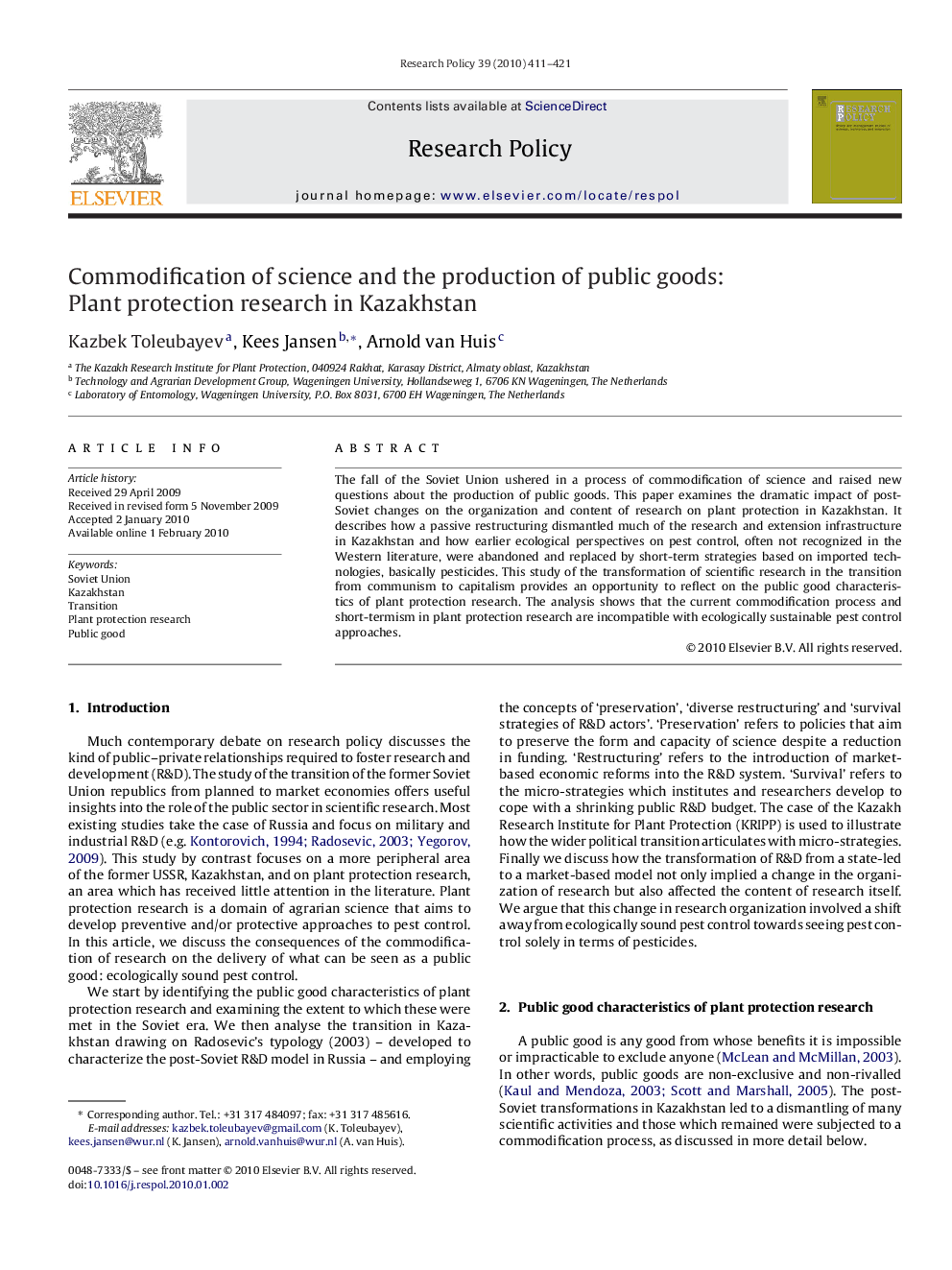| Article ID | Journal | Published Year | Pages | File Type |
|---|---|---|---|---|
| 984194 | Research Policy | 2010 | 11 Pages |
The fall of the Soviet Union ushered in a process of commodification of science and raised new questions about the production of public goods. This paper examines the dramatic impact of post-Soviet changes on the organization and content of research on plant protection in Kazakhstan. It describes how a passive restructuring dismantled much of the research and extension infrastructure in Kazakhstan and how earlier ecological perspectives on pest control, often not recognized in the Western literature, were abandoned and replaced by short-term strategies based on imported technologies, basically pesticides. This study of the transformation of scientific research in the transition from communism to capitalism provides an opportunity to reflect on the public good characteristics of plant protection research. The analysis shows that the current commodification process and short-termism in plant protection research are incompatible with ecologically sustainable pest control approaches.
